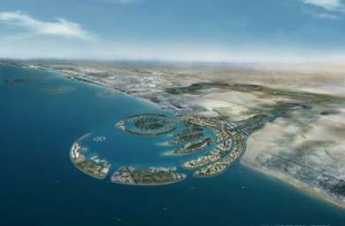Related Topics
Customs, Culture and Traditions
Abundant seafood made it easy to settle here. Agriculture takes longer.
Foreign Affairs
This topic is under construction. Feel free to watch it evolve.
Shaping the Constitution in Philadelphia
After Independence, the weakness of the Federal government dismayed a band of ardent patriots, so under Washington's leadership a stronger Constitution was written. Almost immediately, comrades discovered they had wanted the same thing for different reasons, so during the formative period they struggled to reshape future directions . Moving the Capitol from Philadelphia to the Potomac proved curiously central to all this.
Right Angle Club 2009
The 2009 proceedings of the Right Angle Club of Philadelphia, beginning with the farewell address of the outgoing president, John W. Nixon, and sadly concluding with memorials to two departed members, Fred Etherington and Harry Bishop.
Unwritten Constitutional Modification
It is so difficult to amend the Constitution, we mostly don't do it. Our system is to have the Supreme Court migrate slowly through several small adjustments, watching the country respond. Occasionally we have imported new principles, sometimes not entirely wise ones, adopted without the same seasoning.
Globalization

|
| Peter Aloise |
The Right Angle Club recently heard from one of its own members about the complex issues involved in the topic of globalization. Peter Alois defined globalization as the development of an increasingly integrated world marketplace, although enthusiasts call it Free Trade, and opponents say it interferes with Fair Trade. Although there can be local exceptions, globalization generally leads to lower prices, so consumers are pleased, producers are worried. Since Free Trade can be defined as international commerce without government interference, globalization can also be defined as a general reduction of government influence in trade. But whether you love it or fear it, globalization is a reality; it is here.
Hindrances to trade can take many forms, including subsidies to local merchants, who then can underprice foreign competitors. Carrying things to an extreme, the French fairly recently prohibited the use of American words. While the reasoning used to justify this intrusion into private life was the preservation of the beauty of native French phonetics, this unfortunate government adventure calls attention to the possibility that one of the main functions of local languages is to make it difficult for foreigners to understand what is being said. The Anglo-Saxon response tends to note the large expense of teaching foreign languages in our schools, so why doesn't the rest of the world just stop the nonsense and start speaking English?

|
| Dubai Waterfront |
There does seem to be something about this issue related to fair play, a thoroughly Anglo-Saxon concept. When corruption of trade practices around the world is ranked, it is notable that both New Zealand and Canada, which are ranked at the top, are former British colonies. Somalia, certainly one of least British of countries, is ranked at the bottom. No doubt the French would be offended by this observation. It is also irksome to Fair Trade advocates (ie Globalization opponents) that national prosperity is also fairly parallel to Free Trade policies, absence of corruption, and so on. It was George Washington (probably ghost-written by James Madison) who most famously framed the American Doctrine: Honesty is the best policy.
Some of the members of the Right Angle Club, an outspoken lot, took up the other side of the proposition. Underpricing by foreigners leads to competitive advantage for them and loss of jobs for Americans. This dislocation is the unfortunate side of creative destruction, and a compassionate government should assist its wounded casualties. Whether it should go to the lengths of raising prices for other Americans by hobbling the foreigners, is a more open question. In the passion of argument, it was mentioned that this country was founded on such principles. Well, it would be hard to find anything written in the Constitution or spoken in its debates which supports that claim. But it must be admitted that the new nation wasted little time in creating new tariff protection for struggling new American manufactures, but took an awfully long time to get rid of what protective tariffs it already had. The confusions of the newly developing Industrial Revolution were perhaps not the best time to develop enduring principles of trade fairs, and thus we should not necessarily be held to them forever. But there is certainly room for the argument that a nation may need a certain set of policies when it is new and struggling, that are not necessarily appropriate when it becomes rich enough to claim to dominate world trade.
Originally published: Friday, May 29, 2009; most-recently modified: Tuesday, May 21, 2019
| Posted by: Sal | Sep 14, 2013 11:49 AM |